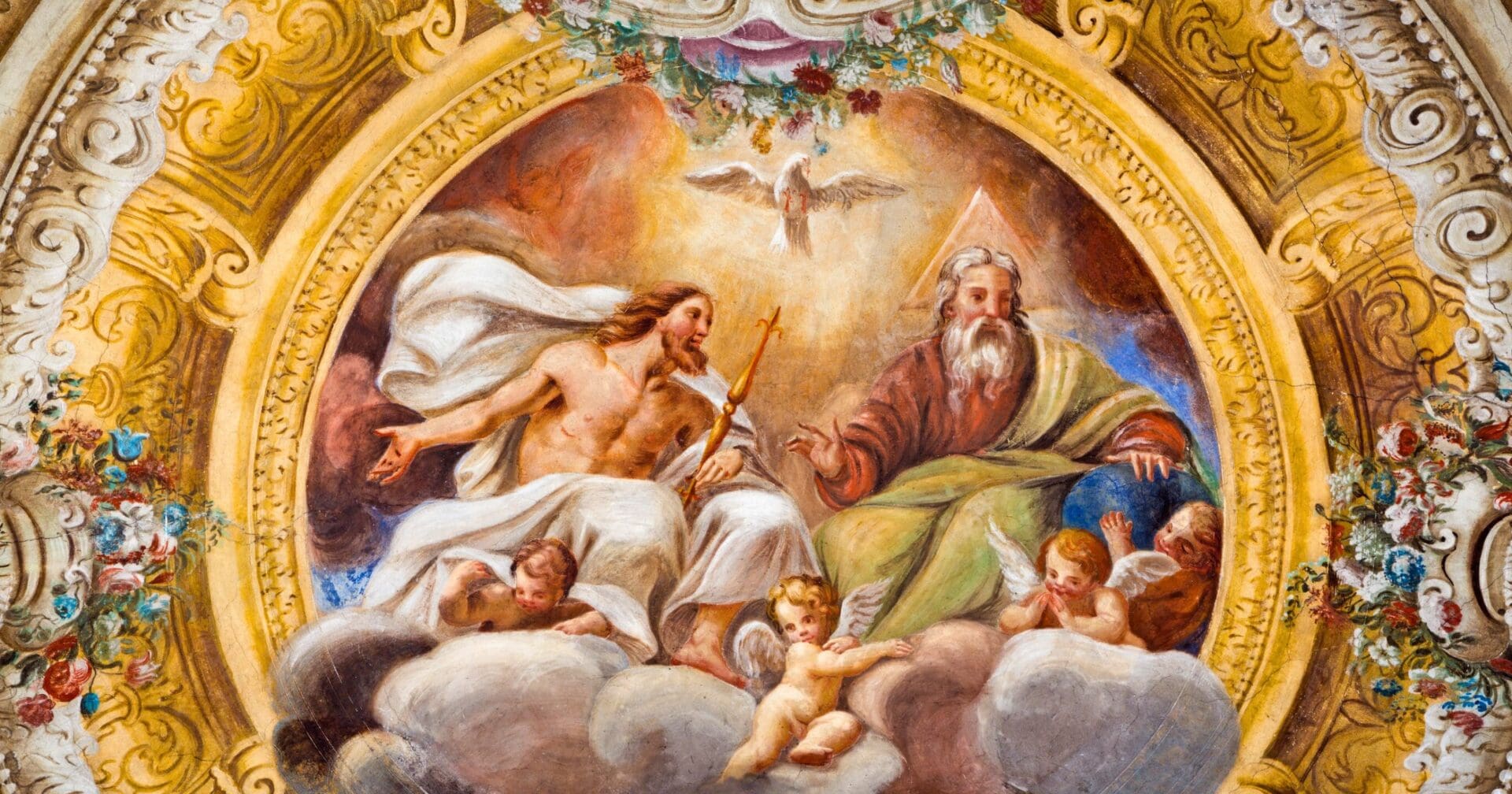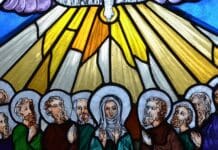Trinity Sunday, also known as Holy Trinity Sunday, is celebrated a week after Pentecost Sunday in honor of the most fundamental of Christian beliefs—belief in the Holy Trinity.
The dogma of faith which forms the object of the feast is this: There is one God and in this one God there are three Divine Persons; the Father is God, the Son is God, the Holy Spirit is God. Yet there are not three Gods, but one, eternal, incomprehensible God! The Father is not more God than the Son, neither is the Son more God than the Holy Spirit. The Father is the first Divine Person; the Son is the second Divine Person, begotten from the nature of the Father from eternity; the Holy Spirit is the third Divine Person, proceeding from the Father and the Son. No mortal can fully fathom this sublime truth.
The feast of the Most Holy Trinity may well be regarded as the Church’s “Te Deum” of gratitude over all the blessings of the Christmas and Easter seasons; for this mystery is a synthesis of Christmas, Epiphany, Easter, Ascension and Pentecost. This feast, which falls on the first Sunday after Pentecost, should make us mindful that actually every Sunday is devoted to the honor of the Most Holy Trinity, that every Sunday is sanctified and consecrated to the triune God. Sunday after Sunday we should recall in a spirit of gratitude the gifts which the Blessed Trinity is bestowing upon us. The Father created and predestined us; on the first day of the week He began the work of creation. The Son redeemed us; Sunday is the “Day of the Lord,” the day of His resurrection. The Holy Spirit sanctified us, made us His temple; on Sunday the Holy Spirit descended upon the infant Church. Sunday, therefore, is the day of the Most Holy Trinity.
The origins of the celebration of Trinity Sunday goes all they way back to the Arian heresy of the fourth century, when Arius denied the divinity of Christ by denying that there are three Persons in God. To stress the doctrine of the Trinity, the Fathers of the Church composed prayers and hymns that were recited on Sundays as part of the Divine Office, the official prayer of the Church. Eventually, a special version of this office began to be celebrated on the Sunday after Pentecost, and the Church in England, at the request of St. Thomas à Becket (1118-1170), was granted permission to celebrate Trinity Sunday. The celebration of Trinity Sunday was made universal by Pope John XXII (1316-34).
For many centuries, the Athanasian Creed was recited at Mass on Trinity Sunday. While seldom read today, the creed can be read privately or recited with your family to revive this ancient tradition.
Editorial credit: Renata Sedmakova / Shutterstock.com



















thanks be to God
O BLESSED TRINITY, WE GIVE THEE PRAISE AND GLORY!!!
Solemnity Of The Most Holy Trinity, pray for us!
Glory be to the Trinity!
HOLY, HOLY, HOLY TO THE MOST BLESSED TRINITY!!!
ALL GLORY AND PRAISE TO THE TRIUNE GOD!!!
AMEN. AMEN. AMEN.
In the name of the Father, and of the Son, and of the Holy Spirit. Amen